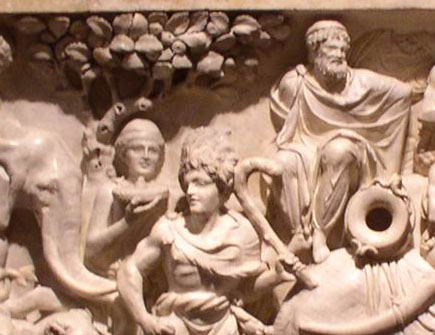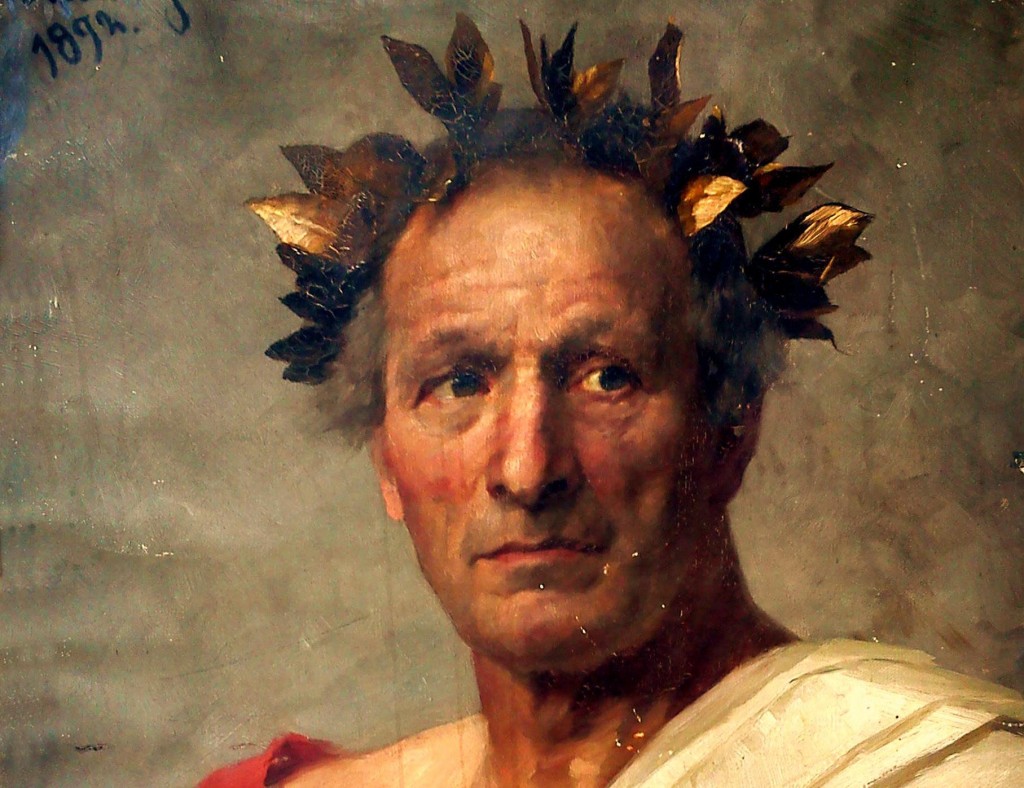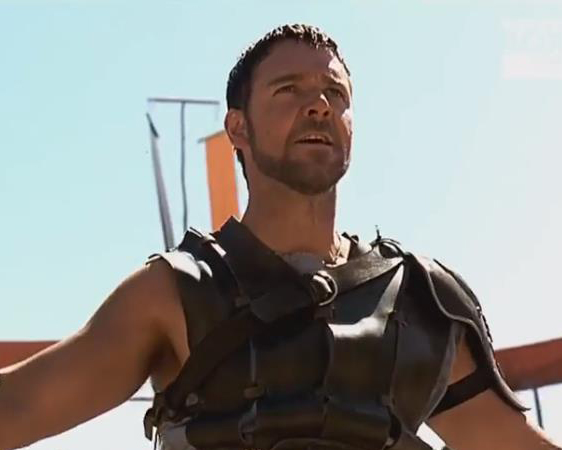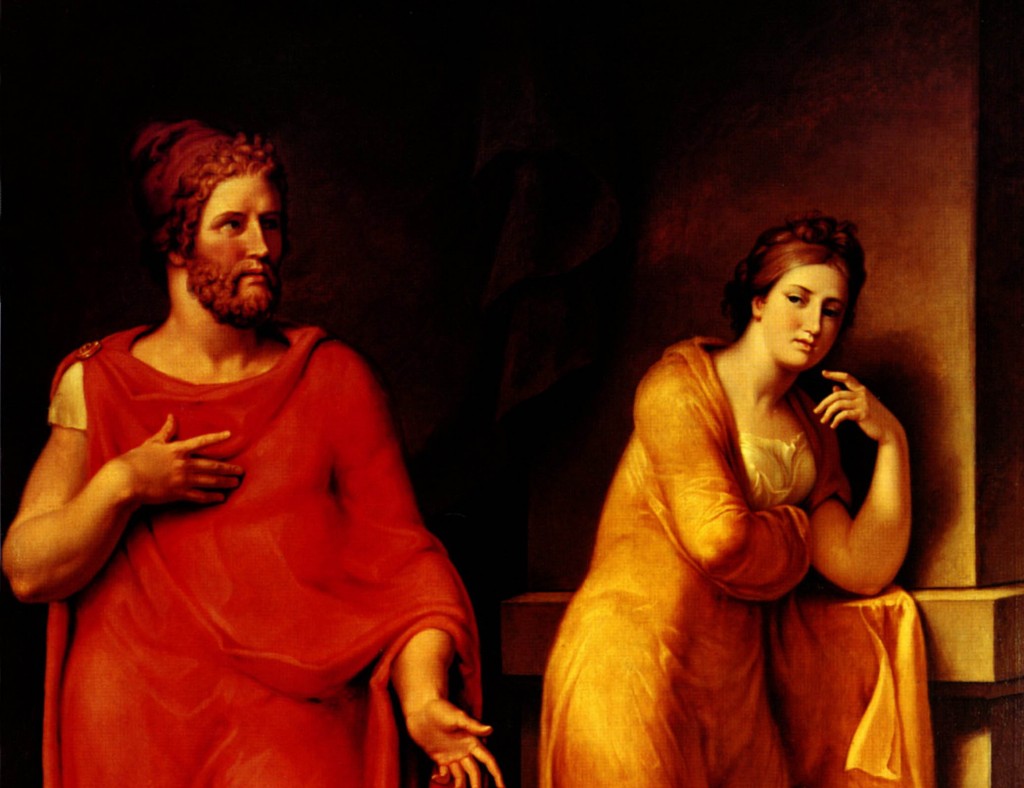 Greek and Roman Mythology Greek and Roman Mythology
An introduction to the study and interpretation of Greek and Roman myths, as they appear both in ancient sources and in later music, sculpture, painting, and literature. The course focuses on interpretive approaches that can help us to define the insights of these myths into to human psychology and the predicaments of men and women, and to apply those insights critically to our own time.
Course Goals
- learn some of the more famous Greek and Roman myths
- practice interpreting them based on detailed examination of the primary ancient sources
- understand how to evaluate information about mythology, and find and use different kinds of primary source material
- examine some of the art from more recent cultures that have used Greek and Roman myths
Syllabus 2018
Myth_Syllabus_Francese_2017
Writing Assignments and Rubrics 2018
Pandora-and-Eve-Outline
Later Uses of a Greek Myth
|
 Ancient Worlds on Film Ancient Worlds on Film
An introduction to ancient Greek, Persian, and Roman history and civilization through primary sources and film portrayals.
Course Goals
- Evaluate films in terms of historical accuracy, compared to primary historical sources
- Appreciate and analyze film as a creative medium, with attention to aspects of production, directors’ and screenwriters’ artistic goals, use of set design, music, script, genre conventions, etc.
- Interpret films and historical sources for their relevance to their time of production, and to today
Syllabus 2018
2018_Syllabus_AWOF_Francese
Writing assignments and rubrics 2018
Essay-on-Zack-Snyder-300
Essay-on-Alexander
Essay-on-Spartacus-or-Gladiator
Roman Film Research Project
|
 Roman Historians: Caesar Roman Historians: Caesar
An introduction to the life and writings of Gaius Julius Caesar (100–44 BC). In addition to reading selections from his account of the Roman civil war in which he was a main protagonist and the victor, we will read the principle ancient sources on his life: the biographies by Plutarch (ca. AD 50–ca. 120) and Suetonius (b. ca. AD 70), and the account of the whole period by Appian of Alexandria (ca. AD 95–ca. 170).
Course Goals
Know:
- course of Roman history ca. 70–44 BC (key figures, dates, stories, ideas)
- Latin vocab. and grammar sufficient to read Caesar comfortably
Understand:
- key values in Roman politics (virtus, dignitas, etc.), as revealed in the civil war/fall of Repub.
- Caesar’s and Pompey’s characters
- causes of the fall of the Republic and Caesar’s assassination
Be able to:
- translate Caesar at sight (with appropriate assistance), and prepared
- read ancient sources critically (Suetonius, Appian, Plutarch, Caesar himself)
- research and write about special topics in Roman history
Syllabus 2016
Caesar Syllabus 2016_Francese
Writing Assignments and Rubrics 2016
Caesar Close Reading paper 2016
|

Public Speaking: Secrets from the Classical Tradition
An introduction to the ancient art of public persuasion, with examination of more recent examples of effective speeches at crucial junctures in American history, insights from the Greek and Roman theorists and practitioners, and practice putting these ideas and techniques to use. Since speech can be a weapon as well as an art, the class examines the ethical aspects of oratory in the context of citizenship in a republic.
Course Goals
- tailor an argument to an audience (evoking emotion, use of commonplaces, expression of character)
- craft an effective message at the word and sentence level (tone, diction, rhythm, rhetorical devices)
- deliver a speech effectively (timing, emphasis, voice modulation)
Syllabus 2020
Talk Prompts 2020
Talk Rubric 2020
|
 Introduction to Greek Poetry Introduction to Greek Poetry
An introduction to Greek poetry through selected readings from Homer’s Odyssey and Iliad in Greek and English, along with selected critical readings on various aspects of Homer and Homeric society.
Course Goals
- read Homer in Greek with appropriate assistance
- relate the poetry of Homer to its historical and literary contexts
- identify and appreciate literary and stylistic features of Homer
Syllabus 2014
Podcasts
Homer podcast assignment
Homer Podcast Rubric
|
|